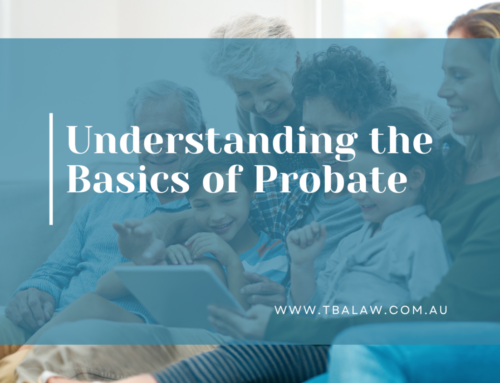7 Secrets About Your Self-Managed Superannuation Fund
It’s no secret that the government is currently looking at changing rules around superannuation, but what are some things that already apply to our superannuation that you don’t know?
Where are the governing rules of your self-managed superannuation found?
There are detailed rules in legislation governing superannuation. However do you know where the specific rules for your self-managed super fund are found? In your trust deed.
Trust deeds are not a standard document. Although some deeds might be very similar, there are many versions of superannuation trust deeds out there. Therefore, your trust deed is unique to your self-managed super fund, and most of the rules for how it operates are found there.
Who can be a trustee of your self-managed superannuation fund?
Members must be the trustee of their self-managed super fund (up to 4), but a corporate trustee could be appointed. There must be at least two individual trustees unless there’s a corporate trustee, so if there’s only one member of the fund then another person needs to also be the trustee. A common scenario would be that a couple has a self-managed super fund, and one of the couple dies. The survivor is the only member of the fund left, but they cannot be the sole trustee. Another trustee needs to be appointed, even though they won’t be a member of the fund!
A sole purpose corporate trustee is preferable for a number of reasons, including consistency, ease of administration changes, protection from creditors, and less opportunities for mistakes.
Who runs your self-managed superannuation fund if you lose capacity?
This should not be a secret to you, but most people don’t know! This depends on the rules in your self-managed super fund trust deed, and also whether you have an Enduring Power of Attorney. Preferably your Enduring Power of Attorney should specifically refer to the power to act in your role in relation to your self-managed super fund, and many solicitors actually leave this out.
Take control while you can and make sure you know who runs your super fund if you can’t any more.
Who can be a shareholder of your self-managed superannuation fund corporate trustee?
Usually, the members have to be directors of the corporate trustee. However,  there’s absolutely no rule as to whom must own the shares in the company in order for the relevant fund to comply with the legislation requirements to be a self-managed super fund.
there’s absolutely no rule as to whom must own the shares in the company in order for the relevant fund to comply with the legislation requirements to be a self-managed super fund.
What does this mean to you? If you’re concerned about the control of the super fund if you lose capacity or die, then you can have other strategic shareholders who have the power to appoint a director, so you can ensure who controls your super and therefore where it goes.
Who runs your self-managed superannuation fund if you die?
As with loss of capacity, who runs your self-managed super fund if you die should not be a surprise to you, but it’s within your control. Your trust deed will usually prescribe how a trustee if appointed in your role, and if you have a corporate trustee then you should be consider shareholders and other means of ensuring control of the company.
Binding nominations
I have written about the need for nominations before – your superannuation doesn’t automatically form part of your estate. Just like with industry and commercial funds, you can make nominations with your self-managed super fund as well. Your trust deed will determine whether you can do a binding nomination, and whether your binding nomination lapses every three years or not.
Nominations are only binding if you nominate a superannuation dependant – basically a spouse, child, financial dependant, or your legal personally representative.
Tax
Superannuation dependants and tax dependants are not the same! Adult children, despite being superannuation dependants for the purpose of being directly nominated to receive superannuation, will pay tax on superannuation the they receive.
There are many other tax rules, tricks, exemptions and applications which you really need a superannuation accountant to help with.





Leave A Comment